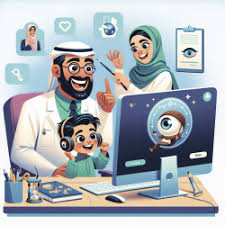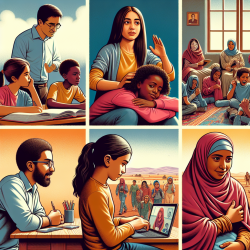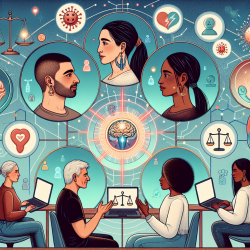Introduction
In the evolving landscape of healthcare, technology continues to play a pivotal role in enhancing patient care and outcomes. A recent study titled "Using a Mobile App–Based Video Recommender System of Patient Narratives to Prepare Women for Breast Cancer Surgery: Development and Usability Study Informed by Qualitative Data" sheds light on how mobile technology can be leveraged to provide personalized patient experiences. This blog explores how practitioners can implement these findings to improve their skills and patient outcomes, particularly in speech language pathology and online therapy services for children.
Understanding the Research
The study developed a mobile app designed to deliver tailored experiential information to women preparing for breast cancer surgery. By using a recommender system, the app offers personalized video narratives that align with the user's preferences and needs. This approach addresses the common issue of information overload by providing the right information at the right time, which is crucial for informed decision-making and reducing anxiety.
Implications for Practitioners
For practitioners in speech language pathology, the insights from this study can be transformative. Here are several ways to implement these findings:
- Personalized Therapy Plans: Just as the app tailors information to individual needs, practitioners can develop personalized therapy plans that consider the unique circumstances and preferences of each child.
- Incorporating Technology: Utilize mobile apps and digital platforms to provide parents and caregivers with tailored resources and guidance, enhancing the support system for children undergoing therapy.
- Data-Driven Decisions: Use data analytics to understand the specific needs of each child and adjust therapy strategies accordingly, ensuring more effective and targeted interventions.
Encouraging Further Research
While the study offers promising results, it also highlights the need for further research in the field of mobile health applications. Practitioners are encouraged to explore the following areas:
- Expanding to Other Conditions: Investigate how similar mobile app technologies can be adapted for other conditions, such as speech and language disorders, to provide tailored therapeutic experiences.
- Longitudinal Studies: Conduct long-term studies to assess the sustained impact of personalized mobile apps on patient outcomes and satisfaction.
- Collaborative Research: Engage in interdisciplinary research to develop comprehensive digital tools that integrate various aspects of healthcare and therapy.
Conclusion
Incorporating personalized mobile technology into therapy practices can significantly enhance patient care and outcomes. By embracing data-driven decisions and tailored information, practitioners can provide more effective and compassionate care to children and their families. As we continue to innovate and explore new possibilities, the potential for improved healthcare experiences is limitless.
To read the original research paper, please follow this link: Using a Mobile App–Based Video Recommender System of Patient Narratives to Prepare Women for Breast Cancer Surgery: Development and Usability Study Informed by Qualitative Data.










